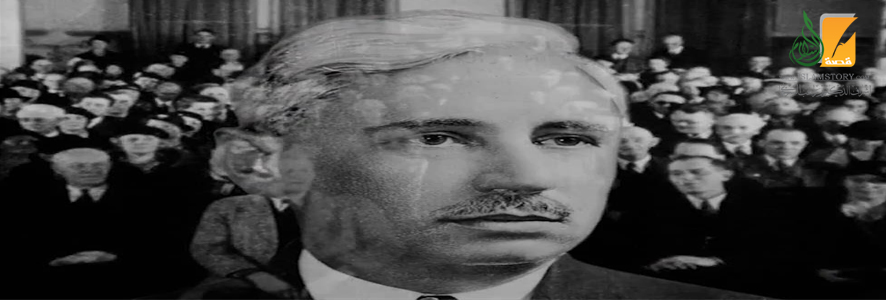Short Description
William Joseph Durant was born in North Adams, Massachusetts, to French-Canadian parents, Joseph Durant and Mary Allard, who took part in the Quebec emigration to the United States
William Joseph Durant was born in North Adams, Massachusetts, to French-Canadian parents, Joseph Durant and Mary Allard, who took part in the Quebec emigration to the United States. In 1900, Durant was educated by the Jesuits in St. Peter's Preparatory School and, later, Saint Peter's College in Jersey City, New Jersey. In 1905, he began experimenting with socialist philosophy but after World War I began recognizing that a "lust for power" underlies all forms of political behavior.
He graduated in 1907 and worked as a reporter for Arthur Brisbane's New York Evening Journal for ten dollars a week. At the Evening Journal, he wrote several articles on sex criminals. In 1907, he began teaching Latin, French, English and geometry at Seton Hall University, South Orange, New Jersey. Durant was also appointed a librarian at the college. He left the seminary in 1911. He became the principal of Ferrer Modern School, an advanced school intended to educate the working classes and taught there as well. Alden Freeman, a supporter of the Ferrer Modern School, sponsored him for a tour of Europe.
In 1913, he resigned his post as a teacher. To support himself, he began lecturing in a Presbyterian church for fees of five and ten dollars and the material for these lectures became the starting point for The Story of Civilization. His writings include: Philosophy and the Social Problem (1917) and Story of Philosophy (1926). But the best of his books is the 11-volume Story of Civilization which he authored with the help of his wife, Ariel, taking them five complete decades. In this book, they did their best to create what they called "integral history".
With this, they opposed the "specialization" of history, an anticipatory rejection of what some have called the "cult of the expert." Their goal was to write a "biography" of a civilization, the West in this case, including not just the usual wars, politics and biography of greatness and villainy, but also the culture, art, philosophy, religion and rise of mass communication. Much of the story considers the living conditions of everyday people throughout the twenty-five hundred years their "story" of the West covers. They also bring an unabashedly moral framework to their accounts, constantly stressing the repetition of the "dominance of the strong over the weak and the clever over the simple."
The Story of Civilization is the most successful historiographical series in history. Two posthumous works by Durant have been published in recent years, The Greatest Minds and Ideas of All Time (2002); and Heroes of History: A Brief History of Civilization from Ancient Times to the Dawn of the Modern Age (2001).
From Story of Civilization:
He was one of the giants of history
“If we judge greatness by influence, he (Mohammed) was one of the giants of history. He undertook to raise the spiritual and moral level of a people harassed into barbarism by heat and foodless wastes and he succeeded more completely than any other reformer; seldom has any man so fully realized his dream. He accomplished his purpose through religion not only because he himself was religious, but because no other medium could have moved the Arabs of his time. He appealed to their imagination, fears and hopes and spoke in terms that they could understand.
When he began, Arabia was a desert flotsam of idolatrous tribes but when he died it was a nation. He restrained fanaticism and superstition, but also used them. Upon Judaism, Zoroastrianism and his native creed, he built a religion simple, clear and strong, as well as a morality of ruthless courage and racial pride which, in a generation, marched to a hundred victories in a century to empire and remains to this day a virile force through half the world.”[1]
The question of polygamy
Although Durant, like other Westerners, does not believe in polygamy, by virtue of his objective view, he discovers in it an aspect of the Prophet’s greatness. He says in defense of him: “We must continually remind ourselves that the high death rate of the male among the ancient and early medieval Semites lent to polygamy, in Semitic eyes, the aspect of a biological necessity, almost a moral obligation.
Mohammed took polygamy for granted, and indulged himself in marriage with a clear conscience and no morbid sensuality. ‘Â’ishah, in a tradition of uncertain authority[2], quoted him as saying that the three most precious things in this world are women, fragrant odors and prayers. Some of his marriages were acts of kindness to the destitute widows of followers or friends; … some were diplomatic marriages.”[3]
And not even highly educated persons
“Mohammed was never known to write anything himself; he used an amanuensis. His apparent illiteracy did not prevent him from composing the most famous and eloquent book in the Arabic tongue and from acquiring such understanding of the management of men as seldom comes to highly educated persons.”[4]
References:
[1] Will Durant, Story of Civilization, vol. 4, 231.
[2] It is authentic but with a slight variation of wording. See Faydh al-Qadîr, al-Manâwi, 3:479-480. [Musnad Ahmad, no. 13079; An-Nasâ’i, no. 3939; al-Hâkim, no. 2676; and it is rendered authentic by al-Albâni, no. 3124]
[3] Ibid. vol. 4, 228-229.
[4] Ibid. vol. 4, 216.






![نصيحتي لك: اذكر الله [1 / 12] نصيحتي لك: اذكر الله [1 / 12]](http://islamstory.com/images/upload/content_thumbs/1913613138ragheb-al-serjany-videos.jpg)


Comments
Send your comment